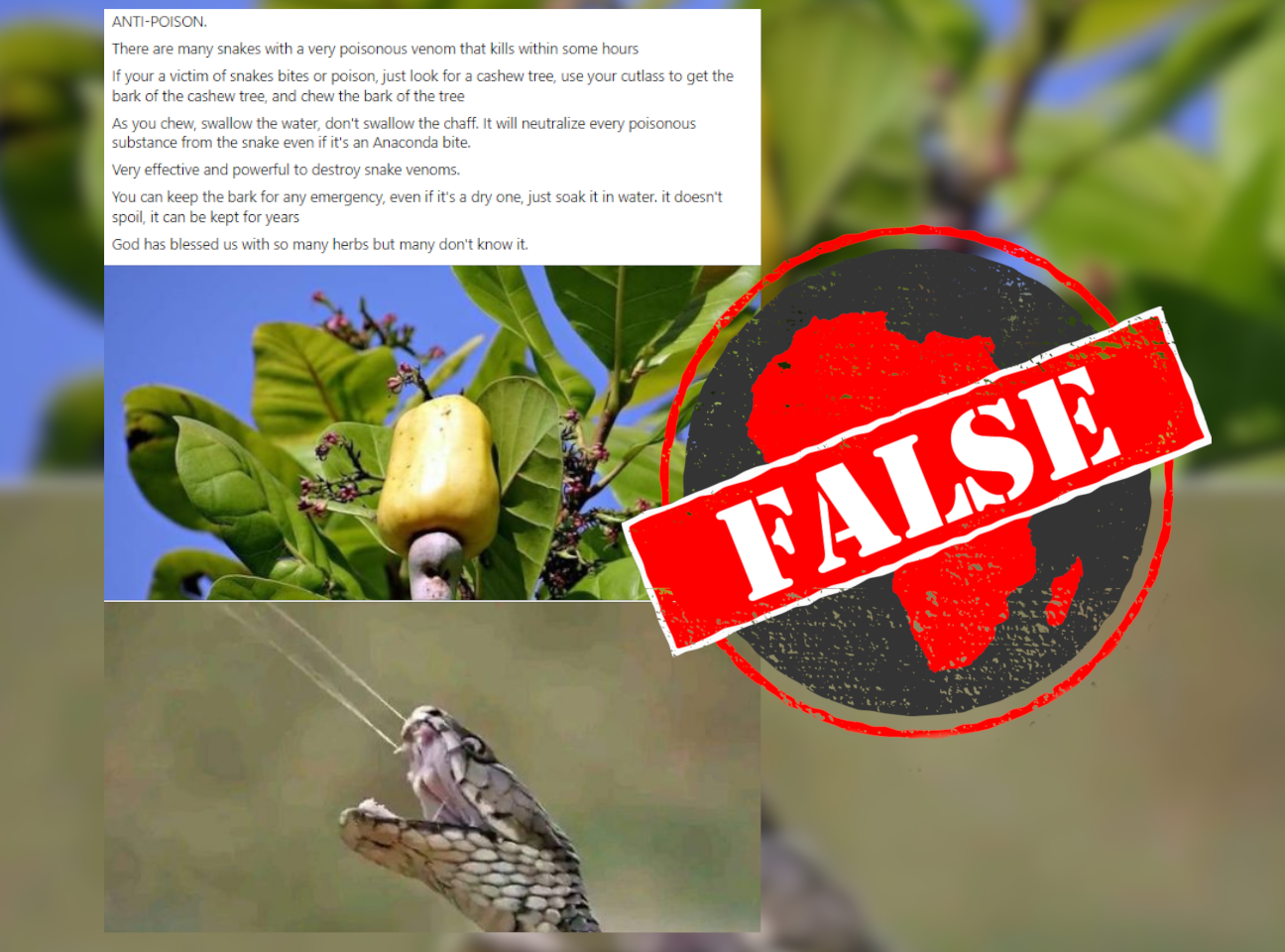IN SHORT: A Facebook post circulating in Nigeria claims that you can treat snake bites by chewing the bark of a cashew tree. But this is false and snakebite victims should seek urgent medical care.
As many as 2.7 million people are bitten by venomous snakes every year. Of those, between 81,000 and 138,000 die, while many survivors are left with a permanent disability.
Sub-Saharan Africa, tropical Asia, New Guinea, and Central and South America are some of the world’s most affected regions and known as snakebite-endemic hot spots.
A Facebook post, circulating in Nigeria in September 2022, claims that the bark of a cashew tree could effectively treat a venomous snakebite. This is because the juices from the bark neutralise the injected poison, the post says.
This claim has been repeated here, here and here. This news article even names a 2009 study as the source of the claim.
But can chewing the bark of a cashew tree really treat a venomous snakebite? We checked.

Antivenom is the only known treatment to prevent death from poisonous snakebite
The 2009 study was conducted by the department of biochemistry at the University of Mysore in India. In the study mice were injected with venom from a viper snake and given a lab-made extract of cashew tree bark.
The study found the extract prevented bleeding, swelling and muscle trauma at the site of the snake bite. The venom was still lethal, but it took longer for the mice who received the extract to die.
The researchers concluded that the extract was a "beneficial first-aid treatment in viper bites".
However, the most effective and only accepted remedy to prevent death or disability from a poisonous snakebite is the appropriate and timely use of antivenom. This has been confirmed by several studies on snakebite envenoming, including the 2009 study above.
Snakebite envenoming is a disease caused by toxins from the bite of a poisonous snake. Antivenom is a treatment which counters the effects of poison.
Prof Nicholas Casewell, director of the Centre for Snakebite Research and Interventions in the UK, told Africa Check that snakebite envenoming is a medical emergency. He advised that snakebite victims urgently seek medical attention to receive antivenom.
"The only specific therapies for snakebites are antivenom," he said.
In guidelines from the World Health Organization for the management of snakebites, they warn against using traditional herbal treatments. They can delay medical treatment, causing more harm than good.
The bark of a cashew tree is not an antivenom and will not prevent death or disability from poisonous snakebites.
Republish our content for free
For publishers: what to do if your post is rated false
A fact-checker has rated your Facebook or Instagram post as “false”, “altered”, “partly false” or “missing context”. This could have serious consequences. What do you do?
Click on our guide for the steps you should follow.
Publishers guideAfrica Check teams up with Facebook
Africa Check is a partner in Meta's third-party fact-checking programme to help stop the spread of false information on social media.
The content we rate as “false” will be downgraded on Facebook and Instagram. This means fewer people will see it.
You can also help identify false information on Facebook. This guide explains how.


Add new comment